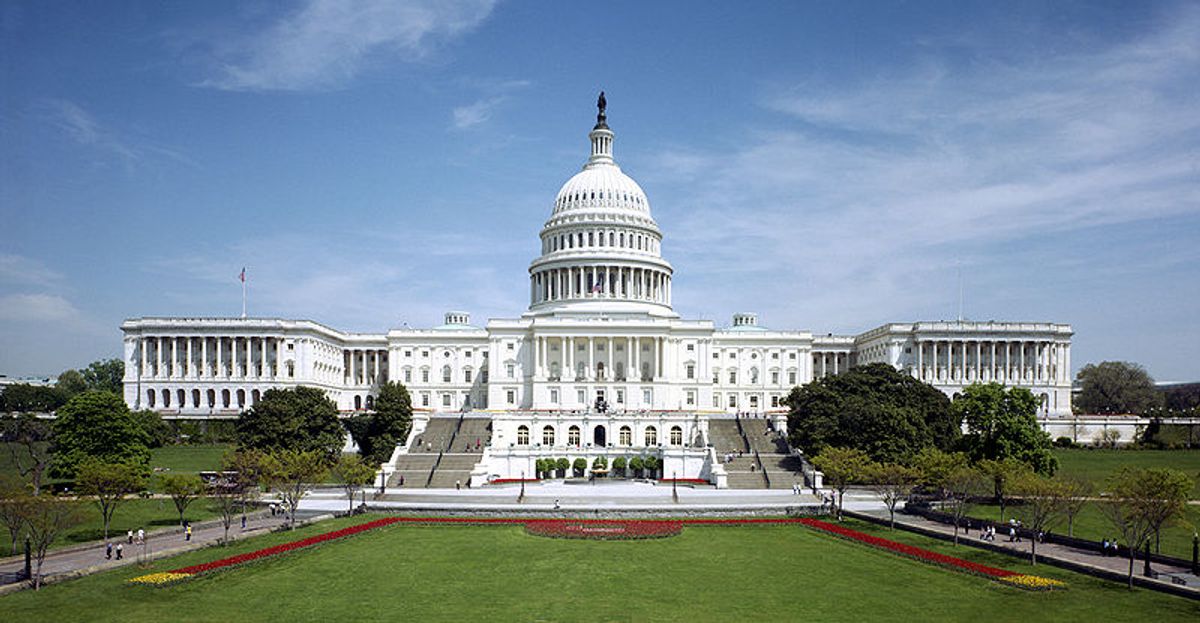Standard & Poor's Ratings Service downgraded its outlook Monday on the United States' sovereign debt, expressing unprecedented doubts over the ability of Washington to bring the massive federal budget deficits under control in the next three years.
The agency lowered the long-term outlook to "Negative" from "Stable," saying there is a one in three chance it will downgrade the rating on the debt in the next two years.
S&P reaffirmed its investment-grade credit ratings on the U.S. long- and short-term debt itself. But it said the ratings are at risk from the country's growing deficit.
It has little confidence that the White House and Congress will agree on a deficit-reduction plan before the fall 2012 elections, the agency said. By that time, the measures won't go into effect until the fiscal year 2014.
The government is on pace to run a record $1.5 trillion deficit this year, the third consecutive deficit exceeding $1 trillion. President Barack Obama and congressional Republicans are sparring over how to reduce the nation's red ink. Their differences over where to cut have put a crucial decision over raising the nation's debt limit in jeopardy.
"We see the path to agreement as challenging because the gap between the parties remains wide," said Standard & Poor's credit analyst Nikola G. Swann.
Stocks plunged after the rating agency lowered its outlook The Dow Jones industrial average fell more than 200 points in early-morning trading.
S&P said the U.S. has a high-income, diversified and flexible economy that has helped it to encourage growth while containing inflation.
But the country's ballooning deficit could offset those positives over the next two years.
The agency noted that the deficit grew to 11 per cent of gross domestic income in 2009. That is much higher than the average of two per cent to five per cent in the previous six years.
Mary Miller, the assistant Treasury secretary for financial markets, said S&P "underestimates the ability of America's leaders to come together to address the difficult fiscal challenges facing the nation."
The president and Congress are working on ways to reduce budget deficits over the long term, she said.
The fight over the deficit and next year's budget is threatening the government's ability to borrow. Analysts say S&P is warning the two parties not to play politics with the debt ceiling.
Treasury Secretary Timothy Geithner said Sunday that Republican leaders have privately assured the Obama administration that Congress will raise the government's borrowing limit in time to avoid an unprecedented default on the nation's debt.
But a top Republican quickly pushed back and said there was no guarantee the GOP would agree to increase the $14.3 trillion debt ceiling without further controls on federal spending.
Geithner has said that the government will hit its current limit no later than May 16. But Geithner said it will be able to avoid an unprecedented default on the national debt through various accounting maneuvers for possibly another two months.
AP Business Writers Janna Herron in New York and Jeannine Aversa in Washington contributed to this report.



Shares